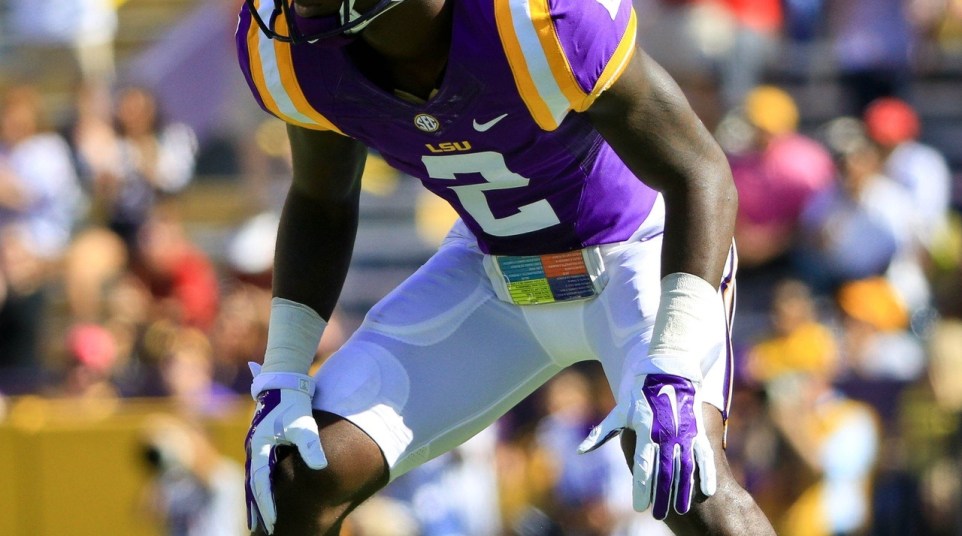
Can LSU catch Alabama? These 5 players hold the key
LSU consistently fields one of the most talented rosters in the country. Their stars become NFL stars: Odell Beckham Jr., Patrick Peterson, Andrew Whitworth and many more.
Once again, the Tigers lost several key starters from last year — including three first-round picks. New head coach Ed Orgeron is known for rallying the troops, but there are a few players in particular who need to play better than their history for LSU this season.
1. Danny Etling, QB
Etling didn’t open the 2016 season as LSU’s starting quarterback, but once he took over in Week 2, we saw noticeable improvement from the offense.
Etling wears the game-manager label very well. He knows his limitations, and so far in his career, he’s done a decent job doing what is asked of him. There is a problem with this approach, however.
LSU’s offense was so limited when the passing game is in ultra-conservative mode, and it will need to break out of that shell if the Tigers want a chance to compete with Alabama and Auburn in the SEC West. Sure, the run game is set up very nicely with Derrius Guice — last year’s rushing champion — and Darrell Williams, but that duo can only take this team so far.
Etling passed for 2,123 yards and 11 TDs last season. The Tigers need those numbers to jump to 3,000 and 20-plus in 2017. That spike would be similar to Pitt QB Nathan Peterman’s jump from 2,287 yards and 20 TDs in 2015 to 2,855 and 27 under Matt Canada last season.
2. Ed Paris, S
Saying a potential early draft entrant needs to step up might seem odd, but with Paris continuing to make the move from corner to safety full-time, that’s exactly what he’ll need to do.
The Tigers lost two studs in the secondary — first-round picks Jamal Adams and Tre’Davious White.
Paris has played in every game since his freshman season in 2014 — bringing his total to 37 consecutive games. He’s only managed to start two, however — both coming last year when he stepped in for an injured Kevin Toliver II. His 17 career tackles aren’t impressive, but Paris was mostly used on special teams until last season.
Being the guy who must replace Adams — the No. 6 overall pick in the 2017 NFL Draft — adds pressure, but Paris seems ready for the task. His size (6-1, 210) should make that transition easier as he’ll be required to cover tight ends more.
3. Will Clapp, OC
Will Clapp is one of LSU’s best offensive players. He started 23 games over the past two years at guard (12 at left guard, 11 at right) and helped open running lanes for the SEC’s second-best attack during that span.
At 6-5, 314 pounds, Clapp has excellent size, and he uses it well in run-blocking and pass protection. So why does Clapp need to step up?
There are two reasons he’s on this list. The first is a position switch as Clapp kicks inside to center to replace last year’s starter Ethan Pocic — a three-year starter who was picked in the second-round pick by the Seattle Seahawks. The second is the other recent loss on the line, Maea Teuhema — who announced he would transfer after being ruled academically ineligible earlier this month.
Clapp has a lot to balance, but the LSU offense absolutely is counting on him to steady a shaky situation.
4. Kevin Toliver II, CB
The Tigers need Toliver to step up in a different way than most of the others who are on this list. After losing Adams and White to the NFL, the secondary needs Toliver’s leadership more than anything.
He already has the pedigree — he was a 5-star prospect according to 247Sports — and the experience needed to be one of LSU’s best overall players. In the past two years, Toliver played in 19 games with 15 starts, and he turned that into 56 tackles, two tackles for loss, six pass breakups and an interception.
Toliver’s only potential issue is staying healthy — he missed the final four games last season with a shoulder injury. DBU is DBU for a reason. They’ve lost and reloaded before. If he can maintain his health and show leadership, it’s possible for this unit to thrive, even without Adams and White.
5. D.J. Chark, WR
Unlike most recruits who come to LSU, Chark wasn’t that highly regarded — a modest 3-star coming out of Alexandria, La. His only two SEC offers came from LSU and Texas A&M. Clearly, he’s outperformed those rankings.
Chark didn’t see snaps at wide receiver until this past season, but he made the most of it when he was finally able to get involved in the offense. He ranked second in receiving yards (466), third in catches (26) and tied for first in receiving touchdowns (3). The Tigers are hoping for at least double that production as Chark transitions into being the team’s “go-to” receiver.
Losing Malachi Dupre, Travin Dural and Colin Jeter to the NFL created several holes in the passing attack. Chark’s size (6-4, 198), speed and explosiveness make him the perfect breakout candidate in the SEC West.
